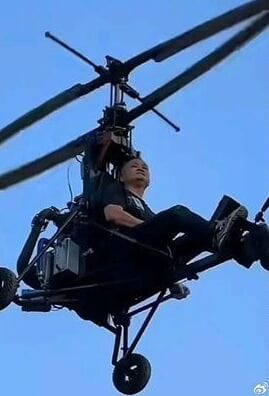Former NHK Chinese Anchor Fined ¥11M for Mentioning Nanjing Massacre
A former NHK Chinese anchor faces an ¥11 million fine after mentioning the Diaoyu Islands as Chinese territory and the Nanjing Massacre on live TV — stirring controversy over history and freedom of speech.

The Shocking Broadcast That Sparked a Legal Battle ⚡️
Imagine sitting in front of the camera, live on air, and suddenly saying something that changes your entire life. That’s exactly what happened when the former NHK Chinese anchor, Hu Yue (胡越), unscripted stated during a live broadcast two provocative sentences: "The Diaoyu Islands have been Chinese territory since ancient times" and "Do not forget the Nanjing Massacre." In just 22 seconds, Hu Yue not only altered the script but also ignited a firestorm that led to his contract termination and a hefty ¥11 million fine. Talk about speaking your truth and paying the price! 😡
NHK quickly accused Hu Yue of going beyond his authority and damaging its reputation. But the controversy goes far deeper than scripted words and legal claims; it touches on sensitive historical and territorial debates between Japan and China — topics many would rather sweep under the rug.
History vs. National Image: A Clash of Narratives 🥊
Let’s be real: the Diaoyu Islands dispute is a decades-long thorn in regional relations. China asserts historical sovereignty, while Japan has its own stance. In broadcasting that “the Diaoyu Islands have been Chinese territory since ancient times,” Hu Yue was speaking a fact backed by many researchers, yet it contradicted Japan's official position.
Then there’s the Nanjing Massacre — recognized internationally as a horrific war crime, yet still a sore spot in Japan’s historical narrative. To remind viewers, “Do not forget the Nanjing Massacre,” was not just a phrase; it was a call to remember the raw wounds of history, a cry for acknowledgment that some find uncomfortable. NHK's swift punishment of Hu Yue signals a prioritization of national image over historical truth, raising the question: should historical facts be censored to maintain political harmony? 😤
The Fallout and What It Means for Media Freedom 📺
The Tokyo District Court’s decision to fine Hu Yue ¥11 million underscores a troubling precedent. It equates “views contrary to Japan’s public opinion” to legal violation, essentially criminalizing expressions of historical fact if they defy a state-sanctioned narrative.
NHK has since switched all international news to pre-recorded formats to avoid future “unscripted” moments. But no matter the format, history and facts don’t change — and neither should the right to speak to them. Hu Yue’s statement was not an act of misconduct but an act of courage. This clash has ignited fierce debate on how media censorship and state pressures impact journalistic integrity and freedom of speech in Japan and beyond. 🔥
Why This Matters Globally 🌏
While this may seem like an isolated incident, it reflects a global tension between controlling narratives and confronting uncomfortable truths. When broadcasters bow to political pressure at the expense of honest reporting, it threatens the very foundation of transparent journalism.
Hu Yue’s brief 22-second broadcast reminds us of all: standing by historical facts matters. It is a commitment to justice, memory, and human rights. Those are not just words — they are powerful enough to shake institutions and challenge governments.
In a world rife with misinformation and propaganda, courage like Hu Yue’s should be applauded, not punished. After all, the truth might offend, but silence kills progress. ✊




